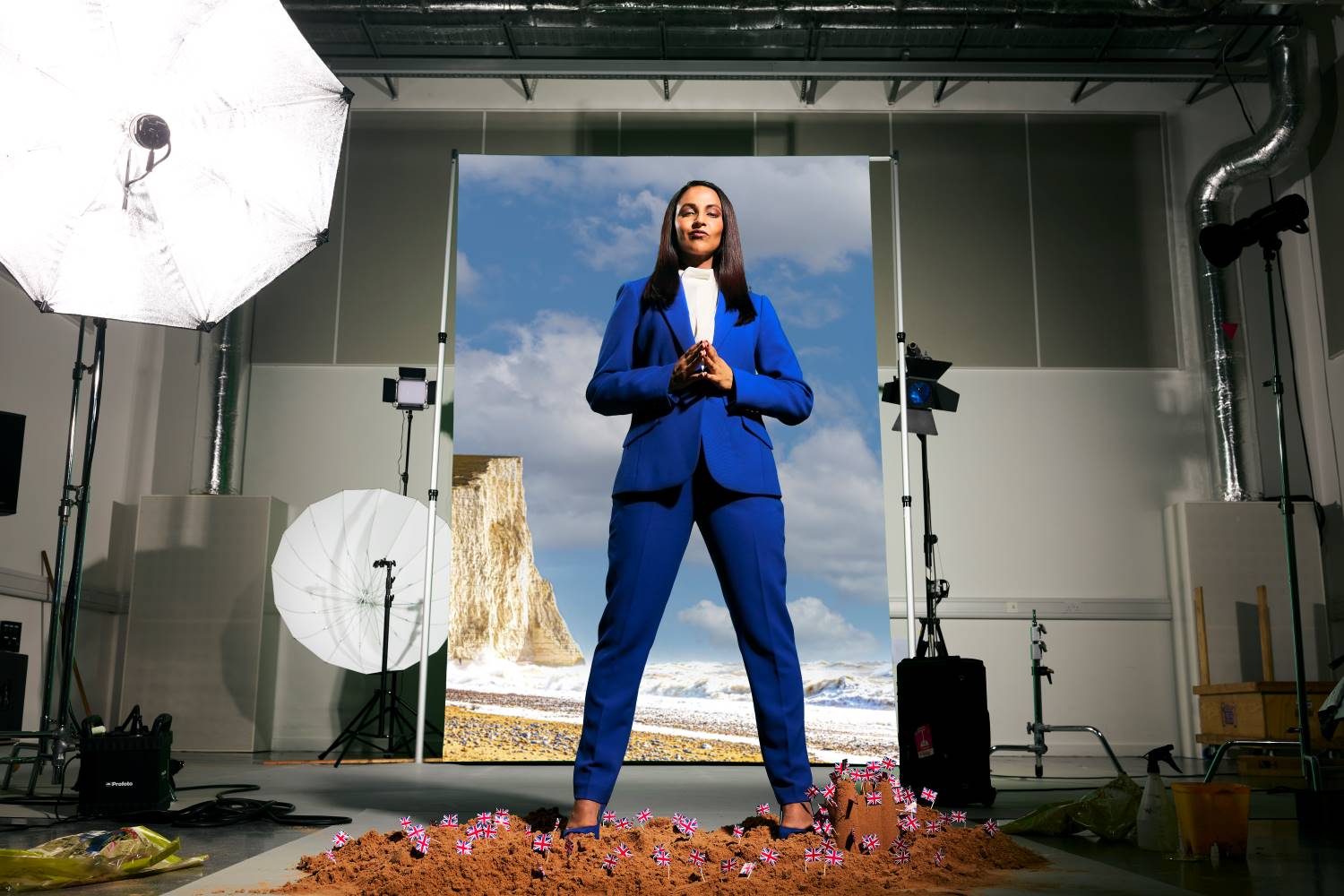UMA NADA-RAJAH: ‘IT’S THE SHOWMANSHIP THAT I FIND REPUGNANT’

Exodus is a dark comedy about a fictional Home Secretary with prime ministerial ambitions whose PR campaign is interrupted when a baby is washed ashore at the White Cliffs Of Dover. The play has been created by Uma Nada-Rajah, the Scottish playwright of Sri Lankan Tamil heritage who won this year’s inaugural Kavya Prize (a literary award honouring Scottish writers of colour) for Toy Plastic Chicken.
Nada-Rajah began writing plays ‘half as a joke’ during her first degree (her mother’s response was less than encouraging: ‘this little brown girl is going to be a playwright? Get a grip!’). After working odd jobs, she became an NHS nurse in 2014, a move that inspired her pandemic-era piece, The Domestic, which has gathered up more than 4.4m views as part of National Theatre Of Scotland’s series, Scenes Of Survival. She now returns with a play satirically exposing deceitful power structures and apathy towards human suffering.

Exodus starring Aryana Ramkhalawon
‘Personally, it took me a while to find my voice,’ Nada-Rajah insists. ‘There are so many competing voices in your head about how things should be and how it should look; of being a woman, being a woman of colour, what a good play looks like. You have to strip it back.’ Directed by NTS’ Debbie Hannan, Exodus centres on Home Secretary Asiya (Aryana Ramkhalawon) and her cut-throat advisor Phoebe (Sophie Steer). Faced with the chance to capitalise on a human tragedy, what will they choose to do in their clamour for power?
That was the dramatic question in mind when Nada-Rajah wrote this. Back then, she was pregnant, Sajid Javid was Home Secretary, and Europe’s largest migrant camp had been destroyed in a fire. It seeks to understand how recent refugees or migrants are interacting with policies and asks what’s behind that. It’s not simply about Priti Patel but a whole front bench of South Asians using their cultural background or colour, for themselves.

Creator of Exodus Uma Nada-Rajah
‘As an NHS nurse, what angers and frustrates me is the use of such policies, instrumentally, to gain power. While there’s this assumption that everyone from the same heritage should have the same political opinion, I don’t agree. Everyone is entitled to their views. It’s the showmanship that I find particularly repugnant.’
It’s those very differences that Nada-Rajah appreciates. ‘When there’s a diversity of voices, people write from their very unique perspective, whatever background they’re from. Anything that breaks down barriers, and is written with honesty and from the heart is so beautiful.’
Exodus, Traverse Theatre, 6–28 August, times vary.